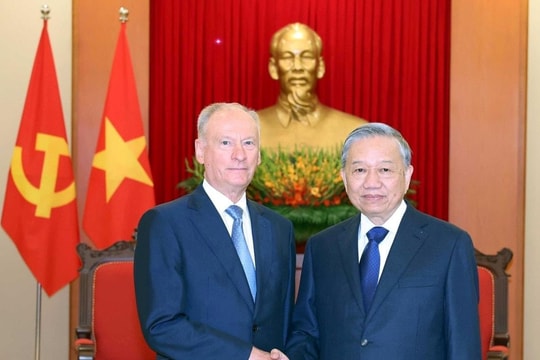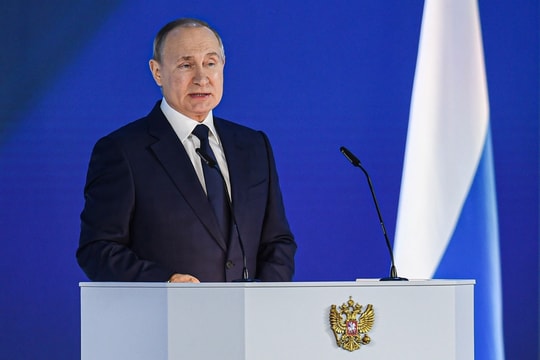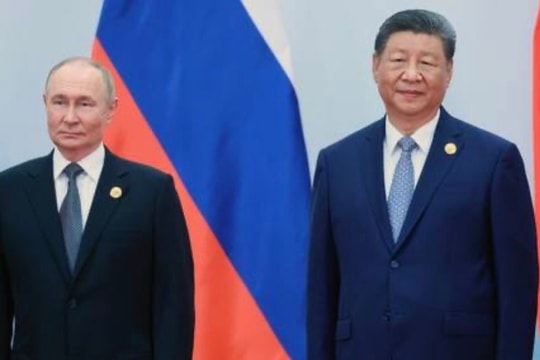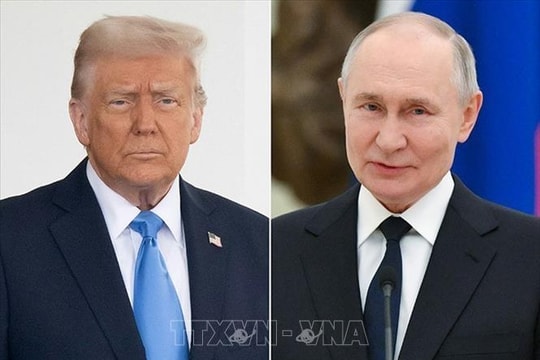How long will Russian President Putin stay in power?
Currently, in Russian politics, Mr. Putin has no worthy opponents. There are almost no significant obstacles to his long-term power in Russia.
Vladimir Putin is almost certain to win the Russian presidential election on March 18. The question is what will he do next when his term ends?
|
| Russian President Putin. Photo: CNBC. |
Putin's victory is not in doubt because he has high prestige (according to current public opinion polls) and is also the current president, so he has the entire state apparatus in his hands - which gives him a huge advantage in the upcoming election.
However, it is unclear how many more years Putin will continue to dominate Russian politics after being the country's leader for 18 consecutive years (14 years as President, 4 years as Prime Minister).
“Most of the discussion among Russia’s ruling elite today is focused not on the next stage of the Putin era, but on the post-Putin period,” said Gleb Pavlovsky, a former Kremlin adviser.
“This is a risky moment for the Russian system of government,” said Vygaudas Usackas, a former EU ambassador to Russia.
Putin's moves
Politician Putin now has at least three options.
First, he could “imitate” Chinese President Xi Jinping and abolish term limits. Second, he could hand over power to a placeholder. Third, he could designate a successor and retire from public life.
Putin’s image is now so firmly entrenched in the Russian government that its members cannot imagine any other leader. Many people at major state-owned companies and banks say they see no real change coming when Mr. Putin’s next term ends.
“There are no discussions in the corridors about succession,” said a source in a Russian government ministry. “It’s as if everyone knows for sure that Putin will be here for a long time.”
If Putin wants to change the Constitution to allow for a third consecutive term, he will need the support of two-thirds of the deputies in the Russian State Duma, three-quarters of the deputies in the Russian Senate, as well as the approval of two-thirds of regional legislatures.
The above institutions all have an overwhelming presence of Kremlin allies, but Putin has affirmed that he will not change the Constitution to continue to rule.
This is probably a wise calculation by Mr. Putin. Because if he did, he would risk facing a negative reaction from voters who see such a move as forcing Russia to turn its back on democracy.
Putin had previously avoided the temptation of amending the Russian Constitution to extend his term in office in 2008. At the end of his second term, Putin chose to temporarily step aside and let his loyal aide, Dmitry Medvedev, run for president. Putin was then certain that his aide would win the election with the Kremlin's backing. Putin then served as prime minister for four years, and was re-elected president in 2012, when Medvedev's term ended. At this point, Medvedev switched to serving as prime minister for Putin.
During the period 2008-2012, Putin continued to influence Russian politics from a lower position.
What is Putin's obstacle?
Perhaps age is Putin's most significant constraint.
Putin is still healthy. But when his fourth term ends, he will be 71. If he steps aside again to wait for the next election, he will be 77. (The presidential term was extended from four to six years in 2008, during Medvedev’s term.)
One source close to the Kremlin said Putin sometimes feels extremely tired, but mainly because he is frustrated by the incompetence of officials or laziness and bureaucracy.
During a meeting between Russian President Putin and Belarusian President Alexander Lukashenko in 2006, Putin was caught confiding in Lukashenko with the microphone still on: “I don’t get enough sleep. The day before yesterday, I only slept for 4 hours. Yesterday, only 5 hours.”
Putin may be reluctant to take power as he approaches 80, having often portrayed himself as a healthy, energetic leader since replacing Boris Yeltsin and bringing a new vitality that most Russian leaders lacked in the final days of the Soviet Union.
Before Putin, leader Josef Stalin ruled the Soviet Union for three decades, while leader Leonid Brezhnev was in power for 18 consecutive years, from 1964 to 1982.
Kremlin insiders say Putin has not yet chosen a successor and the names being floated for the position are nothing more than speculation.
Among those named are Igor Sechin, head of the state oil company Rosneft; Defense Minister Sergei Shoigu; Igor Dyumin, Putin's former bodyguard and now a regional governor; and Moscow Mayor Sergei Sobyanin.
Some people predict that Mr. Putin has not appointed a successor soon for two reasons. First, it may affect Putin's election campaign (attracting less support for him). Second, he needs someone to protect the political project he has built over the years./.






.jpg)


